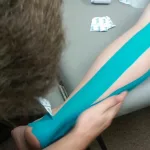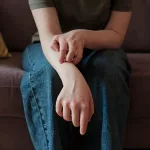Ever looked at your weird habit of checking the stove 10 times before leaving the house and wondered, “Is this OCD? Did I pick this up somewhere? Is it my brain trying to sabotage me?”
I’ve been there. And honestly? The truth about obsessive-compulsive disorder (OCD) causes is… complicated.
It’s Not the Brain
Let’s break a myth wide open:
No, you’re not “broken-brained” for having OCD.
Researchers used to point to brain chemistry and call it a day. Like—a serotonin shortage? The brain’s “faulty wiring”? But newer studies, like the ones you see on IOCDF’s work, show that OCD is not a simple case of “you get born with it, or you don’t.”
It’s not like having brown eyes or toe length — it’s more like a fungus in a garden. You might have the right sort of soil. But without the moisture, heat, and environment? The fungus never quite takes root.
So Where’s the Fuel Coming From?
Here’s the point:
Our brains are squishy, ever-changing, problem-solving machines.
There’s evidence of hyperactivity in certain brain regions like the orbital gyrus and the caudate nucleus — according to research — yes. But if you ask brain scan researchers: “Do we see this mismatch in everyone with OCD?” they’ll shrug back, “No. Not even close.”
So… what are the real culprits?
Let’s start with genes.
Passing It Down
Did I inherit this messy brain wiring from Mom or Dad?
Running in families? Maybe.
The numbers speak for themselves: if someone in your family has OCD, your chance of developing it could be 4x higher (IOCDF). But not always — partially genetic, not fully linked.
Childhood vs. Adult Onset? Not Equal
Severity can vary depending on when and how OCD shows up in your life.
When OCD starts showing drama before puberty? It’s more genetic (45-65%). But for the rest of us, when symptoms show up in early 20s as if out of nowhere?
Then it starts with, well—time and stress, usually. You’re not just broken. Brains adapt. Life hits happen. And OCD? Sometimes it starts growing from that point onwards.
You Think You’re Just a Nervous Sort of Person?
Maybe traits helped grow the problem.
We’ve all heard the phrase, “You attract what you are.” In OCD’s case, some traits might make the symptoms more likely to take root.
Example:
Think you’re hyper-responsive to stress? Do you double-check your phone apps before bed, twice? If the answer’s yes, you guessed it—typical traits that might “water the roots” of intrusive thoughts long before compulsions kick in.
How Stress Gave Me a Full-Blown Compulsion
Let me share something real quick.
Yes, people with OCD don’t like checking rituals. But I lived it — my brain got into high gear after a job loss. Suddenly, I was triple-checking my emails. And the worst part?
Even if I knew I was being ridiculous, I couldn’t stop.
OT kind of exploded in one month because my stress did too. Not because I was weird or wired wrong — just because I was human.
PANDAS: When a Sore Throat Comes in and Starts It
For some kids, OCD isn’t about trauma or genetics at all. It simply… comes.
Have you heard of PANDAS? Probably not in high school biology.
This odd theory says that sometimes, your immune system might be responsible for those intrusive thoughts. Yes, really.
Not All Kids Grow OCD the Same Way
And here’s the kicker: PANDAS can show up overnight.
Skin that girl with sudden irrational fears about harming her younger brother. She used to be perfectly chill with people over, messes in the house, toys scattered anywhere.
But after one decent strep infection? OCD lit up like Christmas lights. Created this sort of circuit of fear and compulsions that she couldn’t dim down.
According to real-world clinical notes, these sudden cases are stress-heavy, mind-altering types of disruptions — even if they communicate differently, neurologically.
Medical Causes? Maybe, Maybe Not
OCD triggered by a medical event, like an infection? Some say yes, some say no. But here’s the truth: no single researcher, let alone general practitioner, has this figured indefinitely.
And if someone gives you a firm “this is medical cause X,” run. Because OCD? It doesn’t like labels. You can’t spot it in a blood test, X-ray, or neurological scan — at least not yet.
Not all mental health conditions get paperwork that cleanly confirms what brought it on. OCD’s one of ’em.
This radio silence in diagnosis? It might worry people, sure. But the vagueness also makes treating OCD easier — since OCD treatment tracks the symptoms, not the origin. Smart, huh?
We Know What Works, Even If We Don’t Know Why
Let me introduce you to the side of OCD management that doesn’t care what caused it.
We call it hope.
OCD Treatment: Does It Know the Cause?
You might think: “How are you supposed to fix OCD if you don’t know what caused it?” That’s a fair thought. A therapy too, cause doesn’t stop treatment from helping.
Take cognitive-behavioral therapy (CBT). It doesn’t walk in saying, “Okay, now that we know what caused your OCD, do this and that.” No, it just teaches your brain to break harmful cycles — regardless of where those cycles started.
For a lot of people, especially those who were triggered by life stress, CBT cuts deep.
For others, more biologically-tied, serotonin drugs like SSRIs shut down part of the overflow, even though they don’t “cure.”
| OCD Type | Common Cause | Most Effective Treatment |
|---|---|---|
| Childhood-Onset | Family history | CBT + Parents’ support |
| Stress-Induced | Big life change | CBT + patient-based coping tools |
| PANDAS | Following infection | Immune therapy + serotonin boosters |
Why We Should Doubt the “OCD Brain” Theory
People love oversimplifying things. Like stuff like: “Oh, you must have an OCD brain.”
Be kind to yourself: the brain’s always different when anxious. You wouldn’t usually blame your heart for stress, would you? But your pulse jumps during big exams regardless, right?
So yes, researchers do see chemical imbalance with OCD. But is the imbalance the engine, or just the afterburner? That’s the question.
Does OCD Choose Personality?
Ruminate over things rigidly? Superstitiously clean? Yup — those are OCD symptoms. Not causes.
That phrase, “I’m kind of OCD about folding my socks,” does more harm than good. No, it’s not just a “really organized brain.”
Let me zoom in: Caring about sock alignment is about behavior, not disorder.
Like Misplaced Guilt
Other issues? You know abuse survivors who obsess about keeping their space hyper-clean — trying to find control in lives where control was stripped away once? That’s a coping strategy gone rogue.
OCD Causes are Confusing, and That’s Okay
If you’ve just spent half a night Googling “Why do I have OCD?” like I once did, this is for you.
What If You Just Never Figure It Out?
You might start thinking, “Maybe it was trauma.” Or, “Maybe I caught stress from work.” Or, “Maybe this just is me.”
And you know what kind of hits that thought with? Withchfulness. Uncertainty.
There’s a thing called “Not knowing” — which turns into meltdown territory if you’re already OCD-adjacent.
But check this out:
Clinically, experts agree — not knowing the cause? Doesn’t weaken treatment success. If anything, you can release the obsession of assignment at: “who caused this,” and just focus on what works.
Still Searching for Cause?
That’s where we all start. But being stuck in “diagnostic phase” can go side-eye real fast.
Let me invite you into the next chapter where you start reducing the effect OCD has on your daily routine. That’s where change starts — and I promise, it’s better than a late-night spiral about your “OCD brain.”
Do a Little, and Make It Simply Work
Still with me?
If so, you’ve already shifted from being stuck (“Why?”) to being helpful and plan-oriented: (“Okay, so maybe I can do something, even if the root doesn’t make sense, yet.”)
If you’re struggling and asking, “Can OCD symptoms go away if I pretend they’re not real,” the answer’s more like: no.
But with some shifts to habits, online cognitive CBT modules, occasional therapy sessions — people report balance, peace, and relearning fear without the loop.
What to Do Next
So your brain jumps from “origin story” to “better coping mechanisms.” You’re thinking, “Maybe CBT or counseling is where I can start checking boxes again.”
What helped me most wasn’t chasing the “origin question.” It was figuring out how rituals weren’t helping, even if they looked like the only way to survive the day. Everyone in the circle gets stuck. But everyone can move forward, regardless of where it came from.
So what do you think? Ready to shift gears and do something about it, even without full resolution of “What caused this,” yet?

























Leave a Reply
You must be logged in to post a comment.